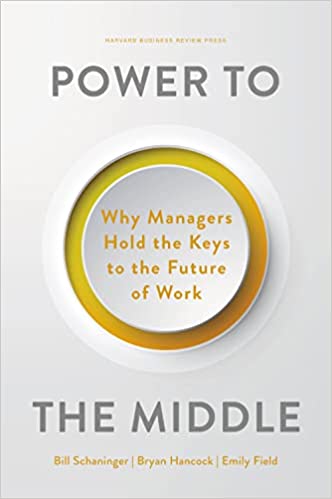One advantage of spending a long time in a particular industry is that it gives you a sense of perspective. You get to see many different ways of doing things. Some good, some not so much.
I was recently out for a social occasion with some former teammates from my days in publishing. We were colleagues for nearly a decade. We’ve been through a lot together, and we’re pretty close. Inevitably, we reminisced.
After a few laughs, someone said, “Oh, and what about Michael?” The mood changed instantly. Eyes were rolled. Heads were shaken. Words were used which had no place in a friendly gathering. The contempt and loathing were unanimous.
When Middle Managers Go Bad
Michael – not his real name, for obvious reasons – had been our manager. What you’d call a “middle manager.” Neither C-suiter nor grunt, he was responsible for presenting the numbers to the next managerial layer up. And responsible for us.
Seen from above, I’ve no doubt that Michael was a model of competence. He hit targets and trimmed costs. He smoothed any potential turbulence, shielding his own superiors from the serious organizational problems being faced by team members.
From below, he was a nightmare. Untrustworthy, evasive and weak, he would go weeks without speaking to any of us outside formal meetings. As a close-knit group working on outlier projects, we probably weren’t the easiest bunch to manage. But Michael didn’t try.
The Stretched Middle
Michael’s brand of “managing up” is just one reason why middle managers get a bad rap. And yet it’s easy to see why it happens. Middle managers are often forced to flip between directing their teams and deferring to their superiors. They end up working on behalf of their reports and appeasing bosses who aren’t interested in their problems, as long as the numbers look good.

It’s no wonder some of them take the easy option. Others try to face both ways at the same time, fall short, and suffer stress or even burnout.
This is the situation the book “Power to the Middle” addresses. Written by three McKinsey consultants with substantial experience of middle management, the book acknowledges that middle managers are in the midst of a crisis. But it doesn’t have to be that way.
A Better Way for Middle Managers?
Back to the social gathering. Also present was the manager who had set up the team in the first place. Let’s call her Kate. Before being made redundant – a frequent fate for middle managers – Kate had recruited us, built our skills and invested time in us.
She had also shielded us from the politics and maneuvering of the layer above her. And she was with us that evening as a friend, not a former manager.
The authors of “Power to the Middle” would approve of Kate. She’s their kind of middle manager. But she could only truly have flourished in an enlightened organization. Enlightened enough to see her potential as a developer of people. To free her from micro-reporting and infighting. Our employer wasn’t that organization. Kate went, and we got Michael.
Freedom From Above
Typically, Kate is diplomatic about Michael. She understands the pressures that make him what he is. But she’s also certain that her way of doing things is the right way. Her reports would agree. Her own bosses might have seen the point too, if they could’ve looked away from a culture based on the short-term fix. It’s a big ask. But doesn’t a culture in which people are free to develop their own skills and their teams’ sound like a healthier option?
The authors of “Power to the Middle” think so. They place revitalized middle managers at the very heart of healthy organization, empowered by an enlightened C-suite. And isn’t that where they ought to be?
Listen to Our “Power to the Middle” Book Insight
We review the best new business books and the tested classics in our monthly Book Insights, available as text or as 15-minute audio downloads.
So, if you’re a Mind Tools Club member or corporate user, download or stream the “Power to the Middle” Book Insight now!
If you haven’t already signed up, join the Mind Tools Club and gain access to our 2,400+ resources, including 390+ Book Insights. For corporate licensing, ask for a demo with one of our team.

About the Author
Simon has been researching, writing and editing non-fiction for over 30 years. In that time he’s worked on educational courses, scientific journals, and mass-market trade books about everything from popular psychology to buying houses in Bulgaria. In the last 20 years he’s specialized in simplifying complex subjects, and helping readers to learn new skills. Away from work he listens to good music, watches bad football, and is fascinated by medieval history.



